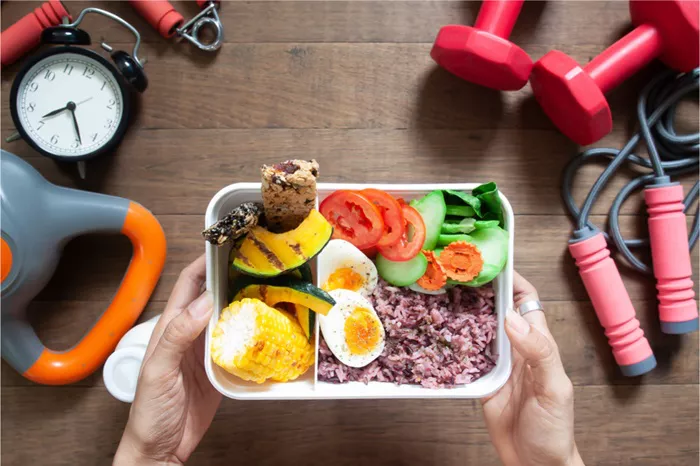In the quest for fitness, the importance of nutrition cannot be overstated. What you consume is as critical as your training regimen, as it significantly influences workout performance, recovery, and overall results. Whether you’re engaged in weightlifting, running, or participating in high-intensity interval training (HIIT), your preand post-workout meals play a vital role in your success.
The Impact of Nutrition on Performance and Recovery
Nutrition serves as the fuel for your body during exercise, and the right dietary choices can enhance performance in various ways. Prior to your workout, your body needs a mix of nutrients to maintain energy levels and prevent muscle breakdown. Eating a balanced meal or snack beforehand can make the difference between a productive workout and one that leaves you fatigued. Post-workout nutrition is equally important as it aids in recovery, repairs muscle tissue, and replenishes energy stores.
This article will delve into the critical aspects of preand post-workout nutrition, offering insights into what to eat, the significance of timing, and how to optimize your dietary choices for peak performance.
Why Preand Post-Workout Nutrition Matters
Understanding the rationale behind preand post-workout nutrition is essential for maximizing your exercise efforts. Your body requires adequate energy to perform optimally, and the appropriate nutrients can significantly enhance your workout experience.
Pre-Workout Nutrition
The right foods consumed before exercising provide the necessary energy to power through workouts. Carbohydrates are the preferred energy source, breaking down into glucose and being stored as glycogen in muscles and the liver. During exercise, your body relies on these glycogen stores for fuel.
A well-balanced pre-workout meal or snack helps ensure glycogen levels are sufficient, maintaining energy, preventing fatigue, and enhancing performance. Additionally, it reduces muscle breakdown and supports growth.
Timing Your Pre-Workout Meal
For optimal results, it is advisable to consume a meal 2-3 hours prior to exercising. This meal should consist of a balanced mix of carbohydrates, protein, and healthy fats. If time is limited, a smaller snack 30-60 minutes before the workout can still provide essential energy.
Ideal Pre-Workout Foods
2-3 Hours Before a Workout
Grilled Chicken with Quinoa and Vegetables: This dish offers lean protein, complex carbohydrates, and fiber for sustained energy and muscle repair.
Whole Grain Toast with Avocado and Eggs: A well-rounded combination of carbohydrates, healthy fats, and protein to fuel your workout while keeping you satisfied.
Oatmeal with Berries and Almond Butter: A complex carbohydrate that digests slowly, providing steady energy alongside antioxidant-rich berries and healthy fats from almond butter.
30-60 Minutes Before a Workout
Banana with Peanut Butter: Quick-digesting carbohydrates from bananas complemented by protein and healthy fats from peanut butter.
Greek Yogurt with Honey and Berries: Protein from Greek yogurt combined with quick carbohydrates from honey and berries for an energizing boost.
A Small Smoothie: Blend a banana, a handful of spinach, protein powder, and almond milk for a light, energy-boosting snack.
Hydration Before Exercise
Hydration is a critical component of pre-workout preparation. Dehydration can severely impact performance, so drinking water throughout the day leading up to your workout is vital. Aim for about 16-20 ounces of water 2-3 hours before exercising, followed by another 8 ounces 20-30 minutes before you start.
Post-Workout Nutrition
After exercise, your body enters a recovery phase, repairing muscle tissue and replenishing glycogen stores. Post-workout nutrition is crucial for kickstarting this process.
To promote muscle repair and reduce soreness, a combination of protein and carbohydrates is ideal after a workout. Consuming the right nutrients soon after exercising aids in recovery and restores energy levels.
Timing Your Post-Workout Meal
To maximize recovery, aim to eat your post-workout meal within 30-60 minutes after exercising. This period, often referred to as the “anabolic window,” is when your body most efficiently absorbs nutrients.
Optimal Post-Workout Foods
Protein-Rich Options
Grilled Chicken with Sweet Potatoes: Lean chicken provides protein for muscle repair, while sweet potatoes replenish glycogen stores with complex carbohydrates.
Salmon with Brown Rice and Vegetables: Rich in omega-3 fatty acids, salmon helps reduce inflammation. Brown rice offers complex carbohydrates for energy.
Protein Shake with a Banana: A convenient option that combines protein powder and a banana for easy digestion post-workout.
Carbohydrate-Rich Options
Quinoa Salad with Mixed Vegetables: Quinoa is a complete protein, paired with vegetables for a balanced recovery meal.
Whole Grain Wrap with Turkey and Hummus: A portable wrap providing lean protein, complex carbohydrates, and healthy fats.
Greek Yogurt with Granola and Berries: Protein from Greek yogurt, complemented by granola and berries for carbohydrates to refuel the body.
Hydration After Exercise
Post-workout hydration is as crucial as pre-workout. To maintain optimal body function, replace fluids lost during exercise. Aim to drink at least 16-24 ounces of water for every pound lost during your workout.
Incorporating Supplements into Your Nutrition Plan
While whole foods should be the foundation of your nutrition, supplements can support performance and recovery.
Common Pre-Workout Supplements
Caffeine: Improves focus, energy, and endurance by stimulating the central nervous system.
Creatine: Enhances strength, power, and muscle mass by replenishing energy stores in muscles.
Beta-Alanine: Buffers acid in muscles, reducing fatigue and improving endurance during high-intensity workouts.
Common Post-Workout Supplements
Protein Powder: A convenient way to ensure adequate protein intake for muscle repair and growth.
Branched-Chain Amino Acids (BCAAs): Reduce muscle soreness and support recovery.
Glutamine: Aids in muscle recovery and reduces soreness after intense exercise.
Customizing Your Nutrition Plan
Every individual has unique nutritional needs based on factors such as age, weight, gender, fitness level, and workout intensity. It is important to listen to your body and adjust your diet as necessary. Experiment with different foods and timing to discover what works best for you.
Consulting a Nutrition Expert
If you’re unsure how to align your diet with your workouts, consulting a nutritionist or dietitian can help create a personalized plan that aligns with your fitness goals and lifestyle.
Practical Tips for Busy Lifestyles
Maintaining nutrition amidst a busy schedule can be challenging, but it is achievable. Here are practical tips to stay on track:
Meal Prep: Prepare meals and snacks in advance for easy access to healthy options.
Keep It Simple: Simple whole foods can provide necessary nutrients without elaborate preparations.
Stay Hydrated: Carry a water bottle throughout the day and consider adding flavor to plain water.
Healthy Snacking: Keep nutritious snacks handy to curb hunger and fuel workouts.
Nutrition Apps: Track your meals and nutrient intake to stay mindful of your choices and meet your goals.
Conclusion
Nutrition is a cornerstone of a successful fitness journey. The choices you make before and after workouts profoundly affect your energy levels, performance, and recovery, ultimately shaping your fitness results. By understanding the roles of carbohydrates, protein, and fats, and their impact on your body during exercise, you can tailor your diet to optimize your fitness experience.
At Fitness CF, we are dedicated to helping you achieve your fitness goals through top-tier equipment, expert training, and nutritional guidance. Remember, consistency is key. By making informed food choices a regular part of your routine, you will positively influence your fitness and overall well-being. Join us at Fitness CF to fuel your fitness journey together.
Related Topics

































